Abarth 500 595 695 vs Tesla Model S – Which one offers the better deal?
Everyday use, family trips or long-distance drives – here’s where the differences show.
Discover whether Abarth 500 595 695 or Tesla Model S fits your lifestyle better.
Costs and Efficiency:
Looking at overall running costs, both models reveal some interesting differences in everyday economy.
Abarth 500 595 695 has a decisively advantage in terms of price – it starts at 32600 £, while the Tesla Model S costs 94300 £. That’s a price difference of around 61715 £.
In terms of energy consumption, the advantage goes to the Abarth 500 595 695: with 17.10 kWh per 100 km, it’s slight more efficient than the Tesla Model S with 17.50 kWh. That’s a difference of about 0.40 kWh.
As for range, the Tesla Model S performs decisively better – achieving up to 634 km, about 369 km more than the Abarth 500 595 695.
Engine and Performance:
Power, torque and acceleration are the classic benchmarks for car enthusiasts – and here, some clear differences start to show.
When it comes to engine power, the Tesla Model S has a convincingly edge – offering 1020 HP compared to 155 HP. That’s roughly 865 HP more horsepower.
In acceleration from 0 to 100 km/h, the Tesla Model S is clearly quicker – completing the sprint in 2.10 s, while the Abarth 500 595 695 takes 7 s. That’s about 4.90 s faster.
In terms of top speed, the Tesla Model S performs clearly better – reaching 300 km/h, while the Abarth 500 595 695 tops out at 155 km/h. The difference is around 145 km/h.
Space and Everyday Use:
Beyond pure performance, interior space and usability matter most in daily life. This is where you see which car is more practical and versatile.
Seats: Tesla Model S offers somewhat more seating capacity – 5 vs 4.
In curb weight, Abarth 500 595 695 is decisively lighter – 1410 kg compared to 2170 kg. The difference is around 760 kg.
In terms of boot space, the Tesla Model S offers decisively more room – 793 L compared to 185 L. That’s a difference of about 608 L.
In maximum load capacity, the Tesla Model S performs clearly better – up to 1828 L, which is about 1278 L more than the Abarth 500 595 695.
When it comes to payload, Abarth 500 595 695 barely noticeable takes the win – 385 kg compared to 364 kg. That’s a difference of about 21 kg.
Who comes out on top?
Overall, the Tesla Model S shows itself to be dominates this comparison and secures the title of DriveDuel Champion.
It convinces with the more balanced overall package and proves to be the more versatile choice for everyday use.
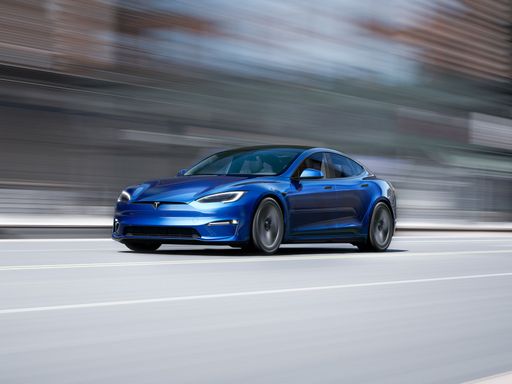 @ Tesla, Inc.
@ Tesla, Inc.
Tesla Model S
Abarth 500 595 695
The Abarth 500, particularly in its 595 and 695 renditions, captures the spirit of Italian motoring with its compact yet aggressive design. Known for its lively performance and distinctive styling, this little powerhouse is a joy to drive, offering an engaging experience that appeals to enthusiasts. With its rich motorsport heritage, the Abarth 500 embodies the essence of fun and excitement on both the streets and the race track.
details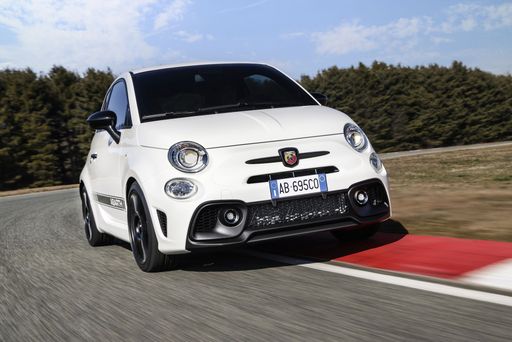 @ Abarth / Stellantis Media
@ Abarth / Stellantis Media
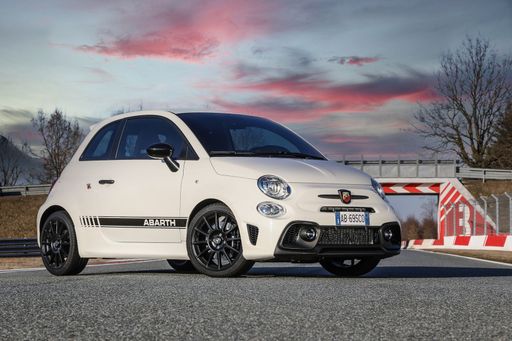 @ Abarth / Stellantis Media
@ Abarth / Stellantis Media
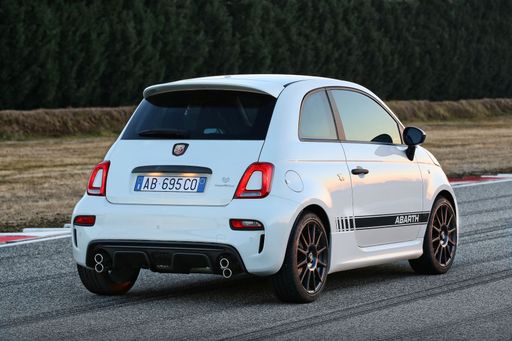 @ Abarth / Stellantis Media
@ Abarth / Stellantis Media
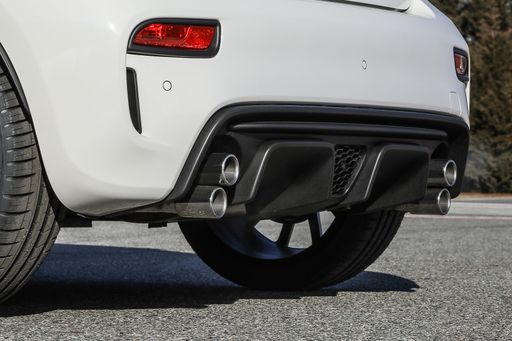 @ Abarth / Stellantis Media
@ Abarth / Stellantis Media
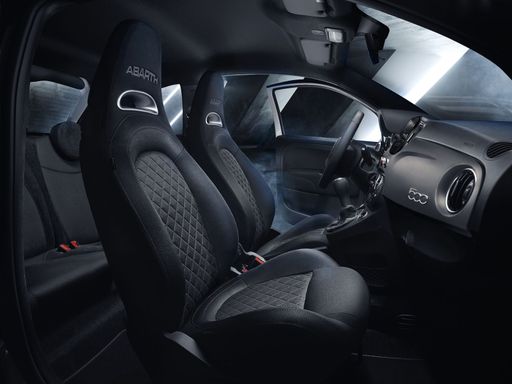 @ Abarth / Stellantis Media
@ Abarth / Stellantis Media
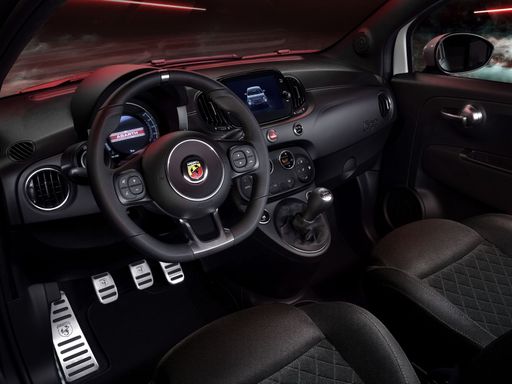 @ Abarth / Stellantis Media
@ Abarth / Stellantis Media
Tesla Model S
The Model S continues to set the standard for luxury electric vehicles, seamlessly blending performance with cutting-edge technology. Its sleek design and spacious interior provide an unparalleled driving experience, making it an ideal choice for modern enthusiasts. With features that emphasize both safety and sustainability, the Model S showcases the future of automotive innovation.
details @ Tesla, Inc.
@ Tesla, Inc.
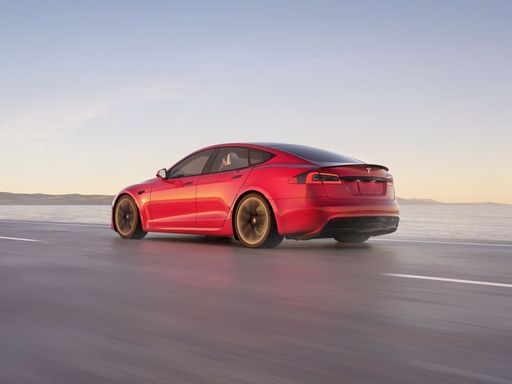 @ Tesla, Inc.
@ Tesla, Inc.
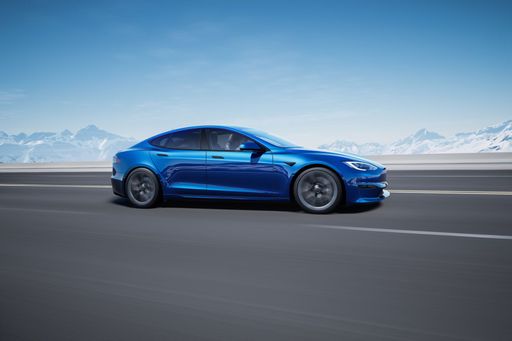 @ Tesla, Inc.
@ Tesla, Inc.
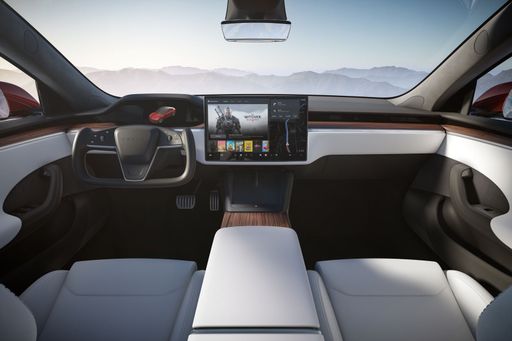 @ Tesla, Inc.
@ Tesla, Inc.
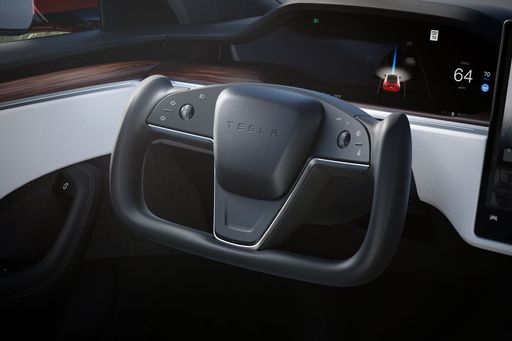 @ Tesla, Inc.
@ Tesla, Inc.
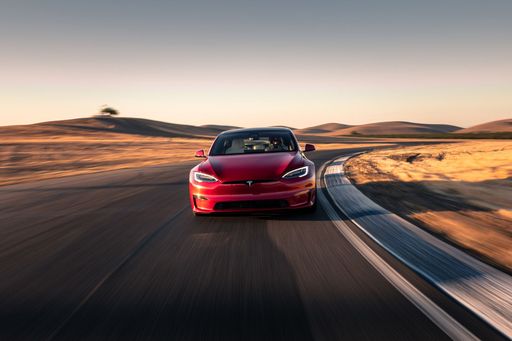 @ Tesla, Inc.
@ Tesla, Inc.
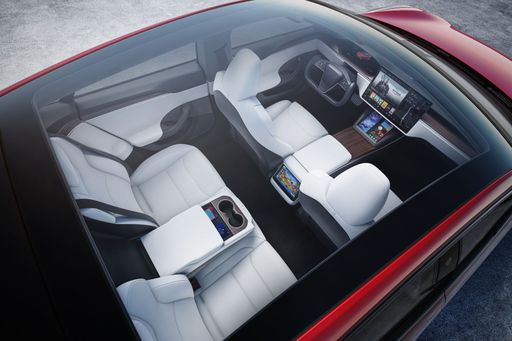 @ Tesla, Inc.
@ Tesla, Inc.
 @ Abarth / Stellantis Media
@ Abarth / Stellantis Media
|
 @ Tesla, Inc.
@ Tesla, Inc.
|
|
|
|
Costs and Consumption |
|
|---|---|
|
Price
32600 - 39400 £
|
Price
94300 - 102800 £
|
|
Consumption L/100km
-
|
Consumption L/100km
-
|
|
Consumption kWh/100km
17.1 - 18.8 kWh
|
Consumption kWh/100km
17.5 - 18.7 kWh
|
|
Electric Range
242 - 265 km
|
Electric Range
600 - 634 km
|
|
Battery Capacity
37.80 kWh
|
Battery Capacity
-
|
|
co2
0 g/km
|
co2
0 g/km
|
|
Fuel tank capacity
-
|
Fuel tank capacity
-
|
Dimensions and Body |
|
|---|---|
|
Body Type
Hatchback
|
Body Type
Hatchback
|
|
Seats
4
|
Seats
5
|
|
Doors
3
|
Doors
5
|
|
Curb weight
1410 - 1435 kg
|
Curb weight
2170 - 2265 kg
|
|
Trunk capacity
185 L
|
Trunk capacity
793 L
|
|
Length
3673 mm
|
Length
5021 mm
|
|
Width
1682 mm
|
Width
1987 mm
|
|
Height
1518 mm
|
Height
1431 mm
|
|
Max trunk capacity
550 L
|
Max trunk capacity
1828 L
|
|
Payload
370 - 385 kg
|
Payload
364 kg
|
Engine and Performance |
|
|---|---|
|
Engine Type
Electric
|
Engine Type
Electric
|
|
Transmission
Automatic
|
Transmission
Automatic
|
|
Transmission Detail
-
|
Transmission Detail
-
|
|
Drive Type
Front-Wheel Drive
|
Drive Type
All-Wheel Drive
|
|
Power HP
155 HP
|
Power HP
670 - 1020 HP
|
|
Acceleration 0-100km/h
7 s
|
Acceleration 0-100km/h
2.1 - 3.2 s
|
|
Max Speed
155 km/h
|
Max Speed
250 - 300 km/h
|
|
Torque
235 Nm
|
Torque
-
|
|
Number of Cylinders
-
|
Number of Cylinders
-
|
|
Power kW
114 kW
|
Power kW
493 - 750 kW
|
|
Engine capacity
-
|
Engine capacity
-
|
General |
|
|---|---|
|
Model Year
2023
|
Model Year
2022 - 2023
|
|
CO2 Efficiency Class
A
|
CO2 Efficiency Class
A
|
|
Brand
Abarth
|
Brand
Tesla
|
Is the Abarth 500 595 695 offered with different drivetrains?
The Abarth 500 595 695 is offered with Front-Wheel Drive.
The prices and data displayed are estimates based on German list prices and may vary by country. This information is not legally binding.
